When I was a kid I was never a fan of team sports. I always resented losing because of someone else's mistakes, so I was drawn towards more solo activities like tennis. Being the turbo nerd that I am, that eventually transitioned into a love of two player competitive games like Magic: the Gathering or 1v1 Smash Bros. Despite this, my favorite team sport has always been the role playing game.
Fundamentally, games like Dungeons and Dragons, GURPS, or World of Darkness are team games. It's you and your party members versus the world that the Game Master has created. That being said, it is VERY important to note that the game isn't the players versus the GM herself. Having a combative attitude with the omnipotent storyteller is only going to lead to hurt feelings, rocks falling, and the dissolution of your group (Your results may vary).
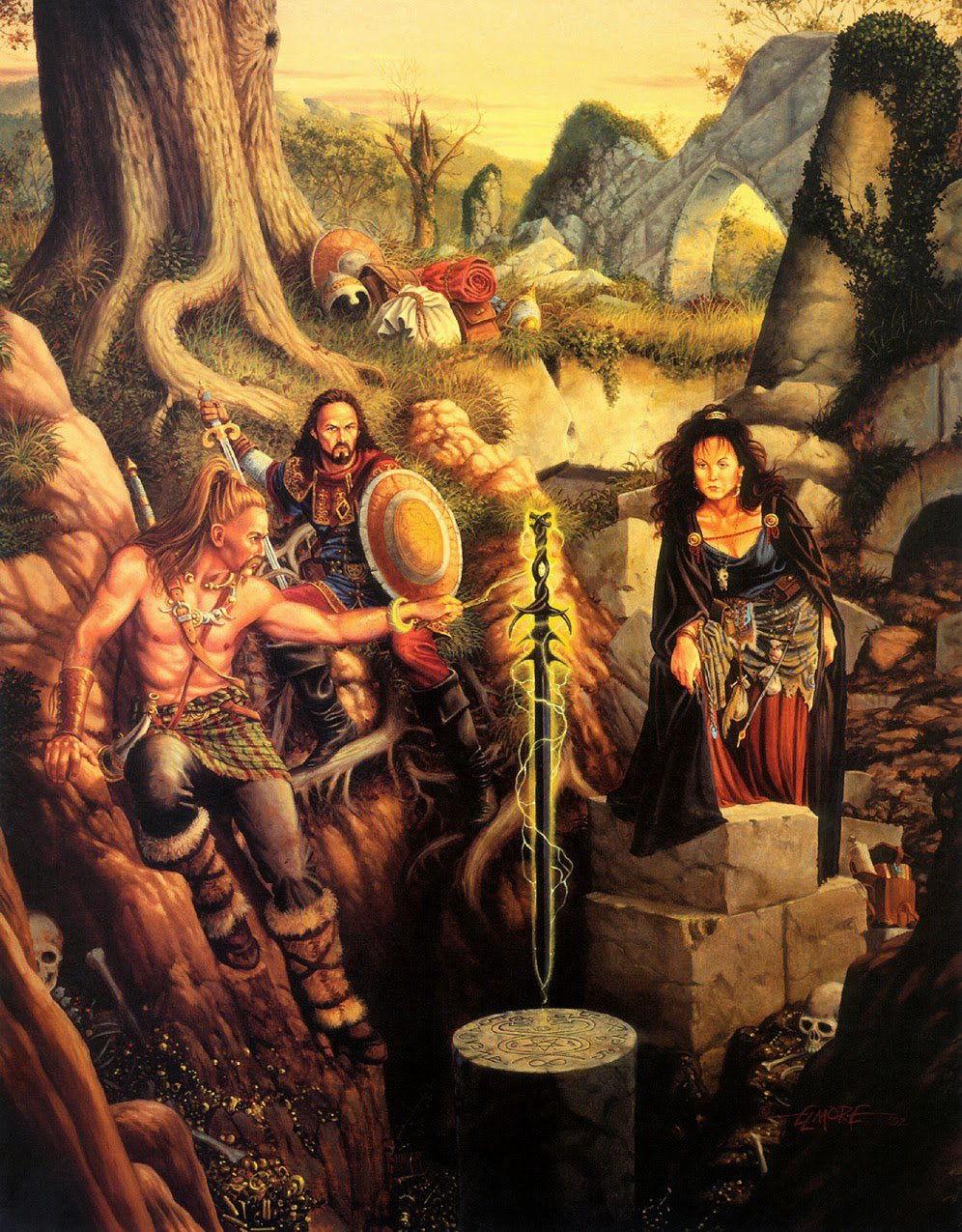
There's NO WAY that touching it will be a bad idea!
If I was going to condense this entire article into one sentence, it would be the one that should be the guiding rule of anything that's meant for entertainment: “Don't be a dick.” You have to communicate with the people around you. Everyone is there to have fun. Make sure you aren't making someone else have less fun by the way you're acting. Just because you are having the chance to imagine yourself as a great fighter/wizard/anime robot doesn't mean this is all just for you. One of the best parts about being in an old fashioned RPG is that imagination can trump a set track of events, becoming something new and unexpected everytime. As a player, it's important to rmeember that this mental adventure isn't just yours, but shared with the others your playing with. How can you have the most fun possible, while also making it a blast for everyone else at the same time?
So, RPGs are a team game. With that in mind, there are two metrics by which you can gauge your ability to be a player in any given game. You have to determine how much fun you as an individual are having, while also keeping in mind how much fun you are contributing to the group experience. If you aren't having fun playing a character for some reason, then it's a disservice to yourself and your friends to keep playing it. If you are clashing with the DM or the other players in a non-constructive way, then you are being a fly in the imaginary dragon-slaying salsa.
Since the majority of your interaction with the group is through your character, you should be aware of the character both on a writing level and a meta-play level. How can the character you play add to the feel of the game, and then how can your actions as the controller of this character keep it a fun experience for all? Both of these should be something to keep in mind. A lot of these suggestions are common sense, spelled out. If you play RPGs, you probably do a lot of these already without purposefully persuing it; still, by writing them out in full, maybe there's a bit of perspective that can help push those positive aspects even further.
Your character alone
Know what you want to do
Knowing how you like to have fun is really helpful because it informs your decisions when planning out a character. If you are the sort of fellow who likes to charge into combat and roll big numbers, it's important to understand the mechanics of the system you are playing in. If you prefer leading your group in roleplay then getting to know your fellow players is critical. If you have fun when everyone around you is having fun (like Wyatt) then maybe you're the sort of fellow to make “group hug” Magic decks or play a character that hands out buffs for your teammates like candy. Delicious, delicious bonus-to-hit candy.
Personally, I enjoy being in control in games; that's how I have fun. I like to know how to apply pressure in a given circumstance to get the result I want. Knowing that helps me to create characters, (and build TCG decks, or design video game loadouts, etc) that allow me to have fun. Recently, I built a LARP character that was very good at making money, but basically useless in combat. I wasn't having fun because I was not able to properly gain control to my satisfaction, so I ended up scrapping the character. Not having fun is basically the worst, so take some time to reflect on how and why you have fun. It may just give you some insights into yourself that could be helpful outside of the game world.
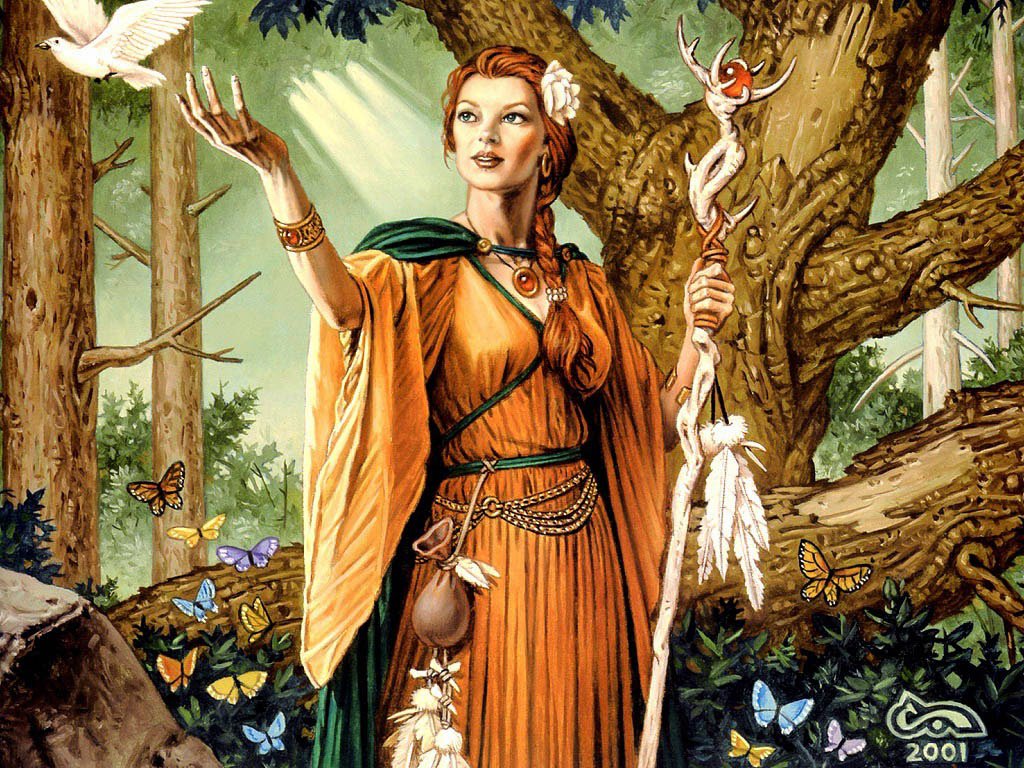
Druids: the Manly Man's way to fulfill his fantasy of being a Disney Princess
Accept that you may not get what you want
Be flexible. Maybe you're joining a group that already has a dedicated sniper, and that's exactly what you wanted to be. It's entirely possible that having two snipers on the crew is going to be detrimental, since you may not feel that you're as special or empowered as you want to be in that role. Also, you'll be impinging on your team-mates position, and they may begrudge you the intrusion. That doesn't mean you should take your dice and go home, but you may have to move a little outside your comfort zone. If you know how you have fun, there has to be another avenue for you to take that will keep you engaged in the game. Maybe they could use a stealthy assassin instead of a sniper, to take out those high-priority targets that the sniper can't get in his scope. Finding ways to compliment your companions while still getting what you want is the essence of compromise, and it is in no way settling.
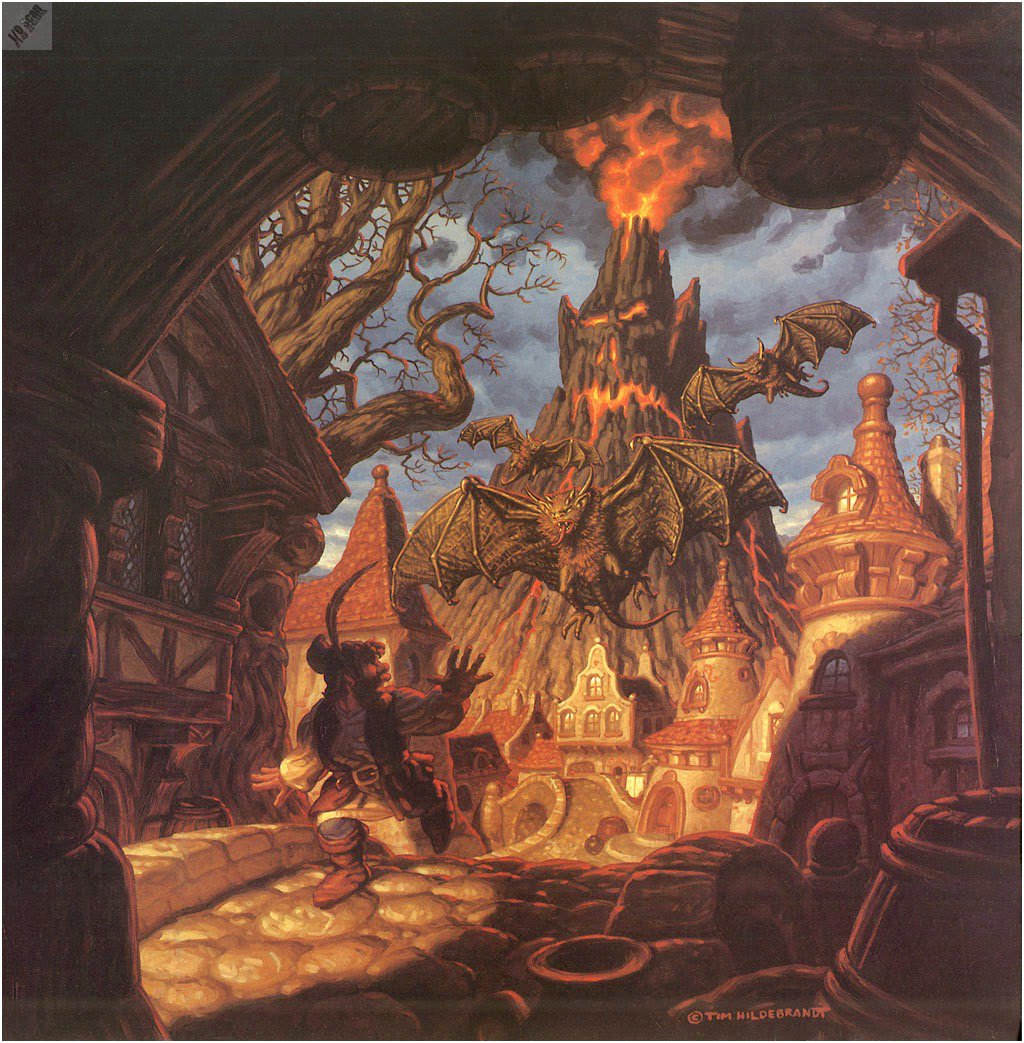
"I just wanted to RP a cheese shop owner!"
However, if you feel that there is no way for you to join in on a given game and have fun, then there's no shame in walking away. Being unsatisfied in a game will ultimately be a waste of time for yourself and others. Bowing out with the excuse of “I'm not having fun” is nothing to be afraid of. Just try not to be a jerk about it and point fingers. You need to take care of yourself.
Know what you are getting into
If the DM is running a European style high fantasy game but the only character you want to play is a ninja, then you may want to consider retooling your concept. Personally I find it incredibly jarring when someone joins a game and acts totally out of theme; It ruins the immersion for me. If a setting or plot doesn't interest you, don't try and shoehorn something totally left-field into the game so you feel more comfortable. Work with your DM and the other players to come up with something that will be fulfilling for you and interesting for the rest of the group to work with.
Don't be a joke
I've seen players make characters that are funny in concept. The luchadore in traditional Tolkien-styled fantasy. The Kender named “Yolo Swaggins.” The bard that only performs rap battles. Now, in theory those ARE funny (maybe?) but the issue is that it’s very hard for a joke character to grow into anything else except a joke. If you want to be funny, that's fine, just make sure that the humor is appropriate to the setting. Making references to modern day stuff in a Wild West setting is going to ruin the immersion for those around you, and eventually even the funniest joke will get old. When your group stops laughing at your break-dance fighting monk, what are you left with? A character you may very well not enjoy playing.
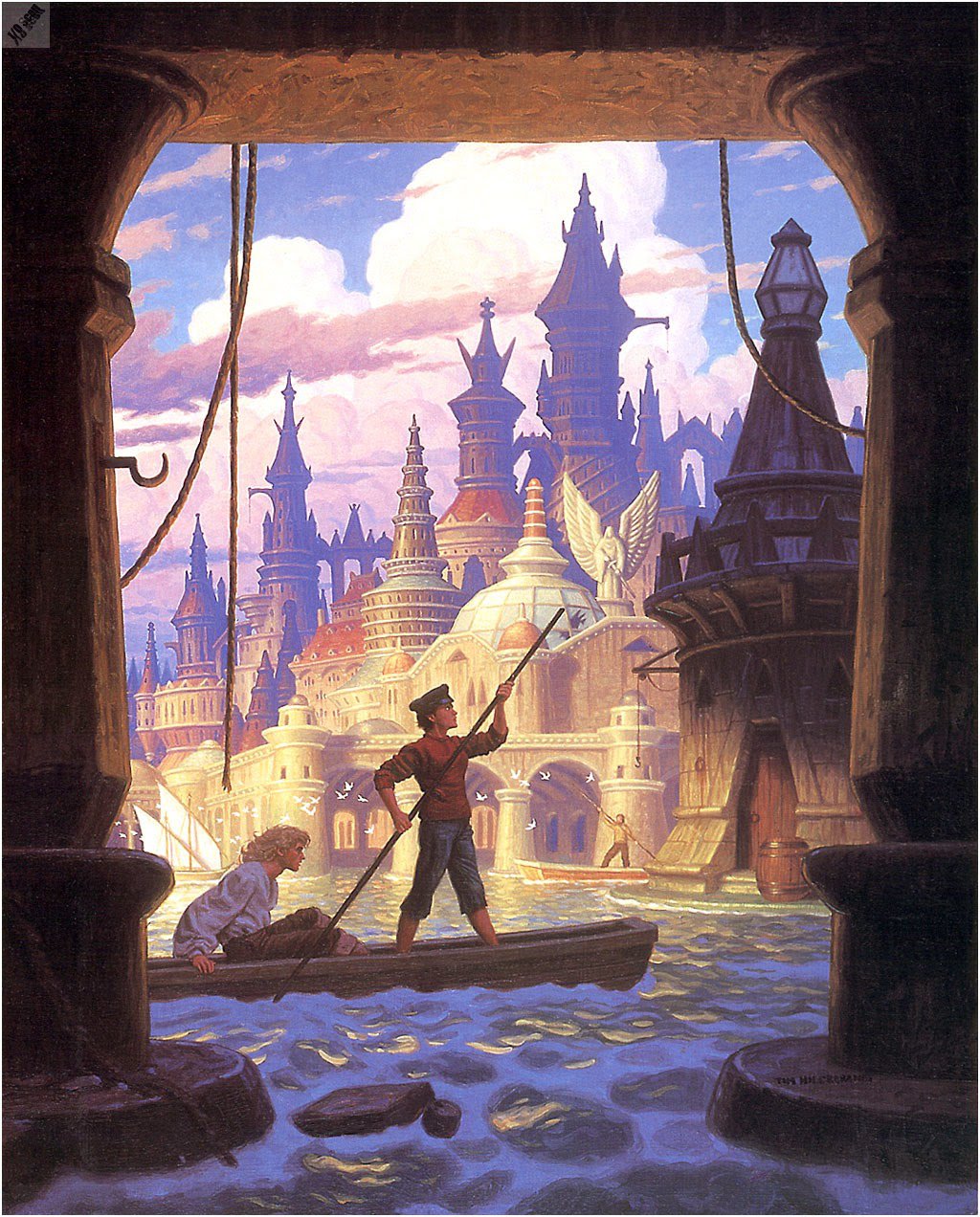
Just because you found a Gondolier Prestige class doesn't mean you should use it.
Know your strengths
Being aware of what you can do well both in character and out of character will be a huge asset to your group. If you know how to play guitar, maybe being a bard and actually playing guitar would be really awesome. If you feel really comfortable about your ability to play a role, help those who may not feel so comfortable come out of their shell. If you can help guide the other players in their decision-making when it comes to game mechanics without coming off as a pedantic know-it-all, great! As an example, I like being in control, so often I will find myself as the “Face” or leader of the party. While I can usually get my way when I formulate a plan I always try and ask the other players what they think. Disempowering the other players by ignoring them or invalidating their decisions, characters, or plans is a great way to make folks leave and not come back. Always try to share your strengths without smothering those around you.
Know your weaknesses
No one is great at everything; Good job on being human! That's why role-playing games are great: your team is greater than the sum of the parts. If you aren't good at role-playing and you just don't feel confident in your ability to be the suave diplomat, that's okay. If your game mechanics are a little shaky, you can get some assistance until you can carry your own weight. You should always try to be better than you were at the last session and reach outside your comfort zone, because mediocrity leads to stagnation. One of the most compelling aspects of a role-playing game is watching your character grow and develop, and often times the players will grow alongside their character as they deal with the situations presented to them. Remember that while your character might be your personal avatar, that this character (and you) have other players that are working alongside you to complete the goal, and to also have fun. Not always, but sometimes you can learn a lot about yourself when you have to make snap life-or-death decisions. It's nice to learn those lessons when there is no real danger.
Your character in the party
Don't make other players have less fun (aka the paladin conundrum)
Part of the compact of role playing games is a certain amount of respect for other people's characters. I spoke at length in my article “Being a Better Dungeon Master” about the concept of empowerment. Making other people feel good about what they are doing is going to make it more fun for them. Simple stuff. “Hey, that was really cool how you shot that orc in the face with your shotgun!” Everyone wants to be told they are doing well. That’s why it worries me whenever someone tries to play a paladin.
Paladins are the characters have strict moral codes: that usually means no murder, no theft, no evil actions, and no consorting with evildoers. A lot of players will roll a paladin and then start telling the other players what to do. “You can’t steal, murder, or lie because it's against my moral code.” This is an issue because as soon as your start curtailing the actions of your fellow players you are dis-empowering them. No one is going to appreciate being told no in a game about being larger than life.
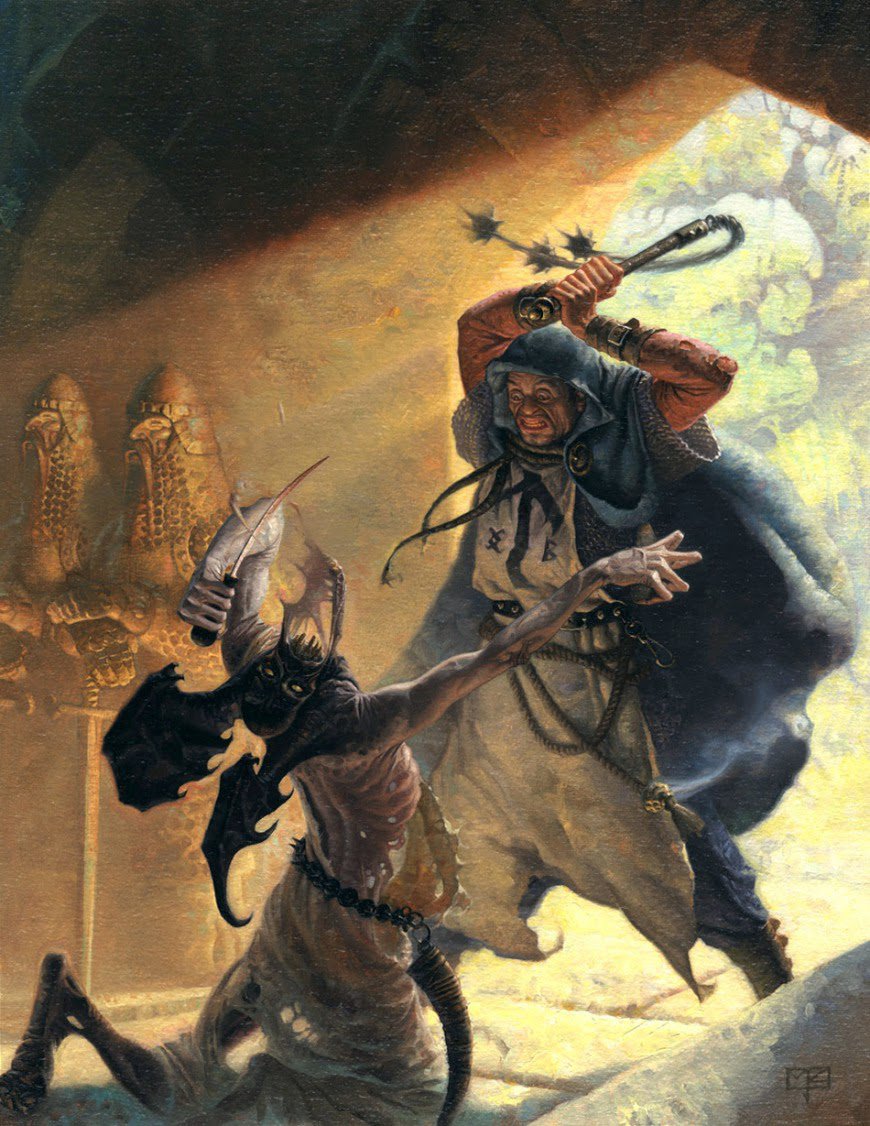
It doesn't matter if your party member is a bat-headed sin unto nature, killing them with a flail is poor manners.
I'm not saying I'm the best player in the world, but as of this writing, I am currently playing a paladin-like character in a modern day superheroes GURPS game and I think I'm doing it in such a way that it is fun for the rest of the group. My character has the Honesty (no lawbreaking) and Pacifism (reluctant killer) disadvantages. As a rule I stick to my character's morals and advise against those things he disagrees with, but I haven't ever stopped one my party members from doing something drastic. I try and lead by example. Once we needed money. My party member walked into a store and robbed the place blind. I said “That's fucked up, we don't need to do it that way.” I then proceeded to walk into a different store and I used my super powers to fix the building and repair a tractor and do other odd chores, and the DM rewarded my play by having the shopkeeper give us a nice little payday. While I did show up my fellow player, I did it in a way that promoted roleplay because we were able to talk about our character's worldviews and that was fun. I feel comfortable doing that with this particular player because he is a good friend of mine and we've been playing together for years. About that incident, he has this to say: “It's okay to say ‘No, I won't,’ because it helps define the character. It's not okay to say, ‘No, you can't.’” My advice when it comes to paladins is be careful. You can very easily make the game entirely unfun and you won't have any recourse except to scrap the character and make a new one.
Player versus player combat
Sometimes you want to turn around and smack Rothondil the sarcastic elf bard right in his sarcastic knife-ear face. Maybe it's because Jeff, Rothondil's player, ate all of the doughnuts and didn't even ask if you wanted any. What the ****, Jeff? Let me tell you something. I've never seen player vs. player combat do anything other than waste everyone's time and hurt everyone's feelings. It always takes up the entire session and never gets anywhere. I've had several groups fall apart right from under me because two players couldn't figure their shit out and started bopping each other in the field. One time I heard a story where a DM set up a fun lighthearted gladiator-style combat ring in a game where players could choose to participate against each other if they wanted. PvP could be fun if there was nothing serious on the line, but if violence is your inter-party conflict resolution technique, then something is drastically out of whack.
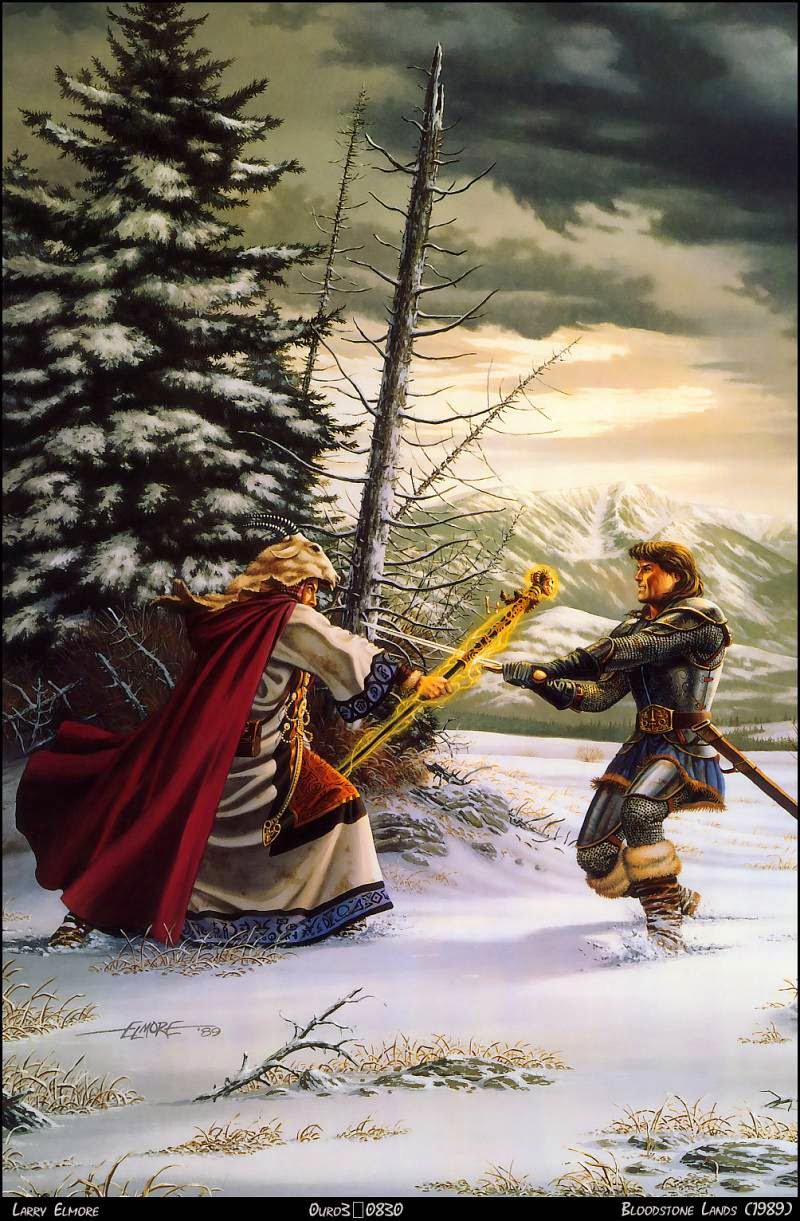
"Yay, we are wasting everyone's time!" "Yaaaaaaay!"
If you have a problem with a character or a player then your best bet is to talk to them. Communicate. Something that I learned in my improvisational role-play workshops is that as soon as the violence starts, the role-play stops. The THREAT of violence is great for role-play and storytelling but you need to make it 100% clear to everyone involved that it is part of the narrative and separate from your feelings about the people around you. If you feel that you can't separate your distaste of another player and that player's character, maybe you should find a different group to play with where you can have more no-strings-attached fun.
Personal tastes are personal
I'm not going to sugarcoat this one. Your fetishes make me uncomfortable. If you think loli catgirls are cool, that's great. Think tentacles are one of the best things in animated cartoons? This is America, knock yourself out... In the privacy of your own home. Please, don't bring it to the table. If you think you are encroaching on some touchy subjects, the best way to find out is to ask. Being conscientious about how your actions impact the others at the table is paramount to being a good player. Communicate with them: If you don't feel comfortable proffering your character to the examination of the rest of the group, it's probably safe to say it will make them uncomfortable too. This applies to gore as well - just because you did an extra thirty damage to that poor goblin doesn't mean you have to describe the kill in the bloodiest, most disgusting way you can. The caveat here is that if everyone at the table is okay with it, like you’re all playing F.A.T.A.L. or something (Look it up) and you're all consenting adults, you can basically get as gross as you want. Most of the time, especially when you aren't playing with close friends, no one wants to hear you gush about your very curious fascination with lizardmen.
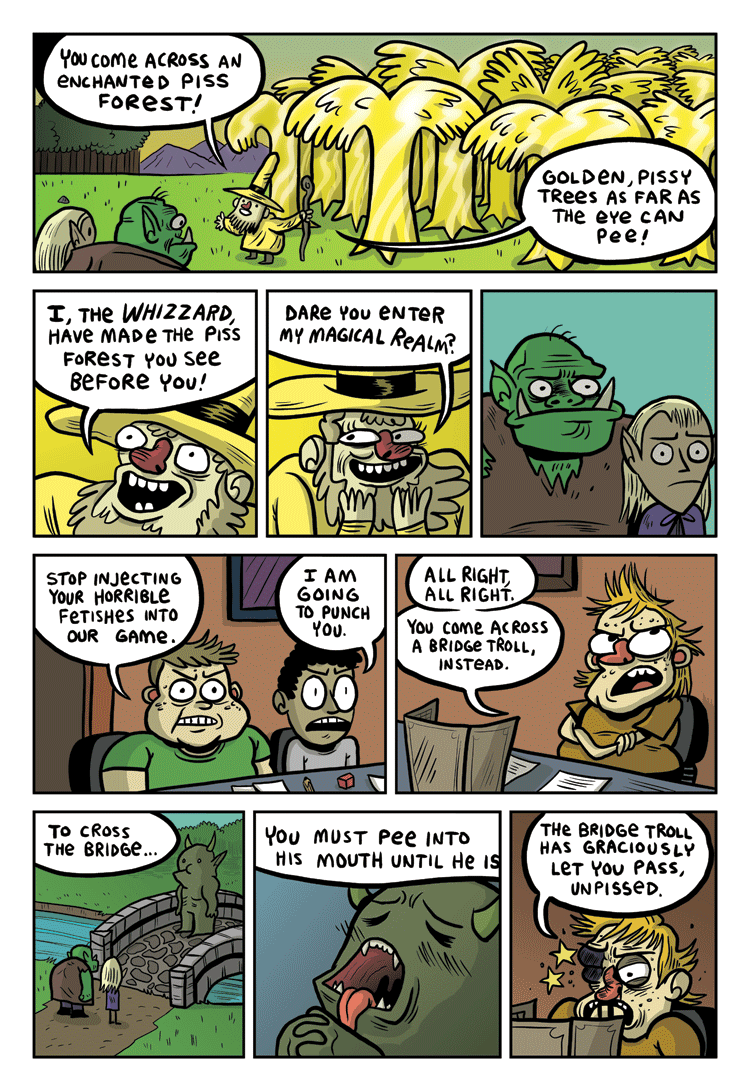
Don't be an entitled jerk
This is a game. If you're reading this article you probably are an adult in the position to spend your disposable income on toys and games and pretending to be an elf in a basement with your friends. I do it too, there's nothing to be ashamed of. However you shouldn't ever lose sight of that fact. If you get too wrapped up in the fantasy and it gets to the point where you are throwing a fit in real life then at BEST you look like one of those dads screaming at the volunteer coaches at a little league game, and at worst you're being That Guy and no one will invite you back to the next game. When you lose sight of the fact that this is a hobby then things get weird. No one HAS to play with you. The DM has spent a lot of time and effort on making things fun for everyone and the players have gone out of their way to join in. If they aren't pandering to your interests and you are miserable, no one is making you stay. Either change your attitude or go. They say that if you run into an asshole in the morning, then you met an asshole. If you run into assholes all day, then you might just be an asshole.
Synergize
The lone wolf character is a really neat archetype in narrative formats found on television or in books but it is really hard to justify those same loner actions in a group game setting. If you want to be Batman and fuck off into the city every night to fight crime while everyone else is sleeping, you'll feel really empowered and kick criminal ass while everyone else sits around waiting for your 45 minute wank session to be over. Be considerate and invite others to join in on your expeditions. If you invite others to play along with your plans and schemes they will appreciate that you consider them worthy of your time.
Be open minded
Sometimes your fellow players may put forth a character concept or a plan that seems pretty silly to you. However it seems, sometimes making bad decisions may be fun for the roleplay! It may turn out to be pretty cool. It doesn't cost you anything to play along. My favorite character archetype has always been the Lawful Evil schemer. I love coming up with the best, smartest, most-likely-to-succeed plans. However once in a while I like to play a character who is just downright foolish. Making mistakes can lead to really fun challenges. Let your fellow players think outside the box and try something crazy, it may just work.
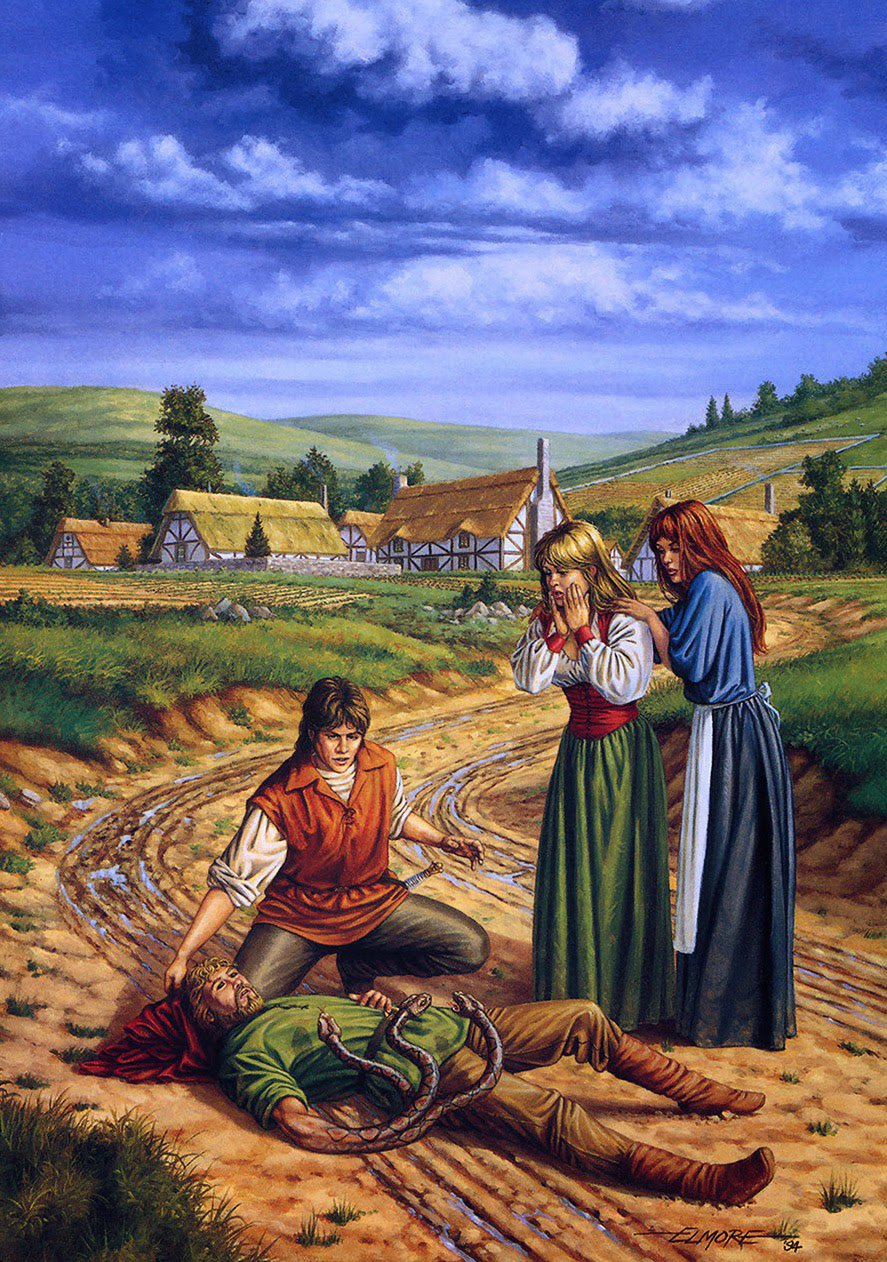
"No, Ralph, the snake-arm blind guy thing is going to work. Trust me!"
On the other hand, if something makes you legitimately uncomfortable out of game, it is okay to have a problem with it! Instead of having a knee-jerk reaction you should talk about it. Voicing opinions is okay and having discussions is okay but if you start attacking people then something is wrong. Maybe someone floats an idea that you think is legitimately not okay. If you raise an objection and everyone in the group tells you they don't agree with you then you are presented with two options: Stay and deal with it (acceptable) or leave (also acceptable).
Being the best you can be
Acting in concert with your friends is more satisfying than stealing the show could ever be. Remember to be considerate, kind, and caring. Even if you are roleplaying a cannibal slasher you don't have to be a douchenozzle at the table. When you are at your best it will make the other people you interact with want to rise to your level and everyone wins.